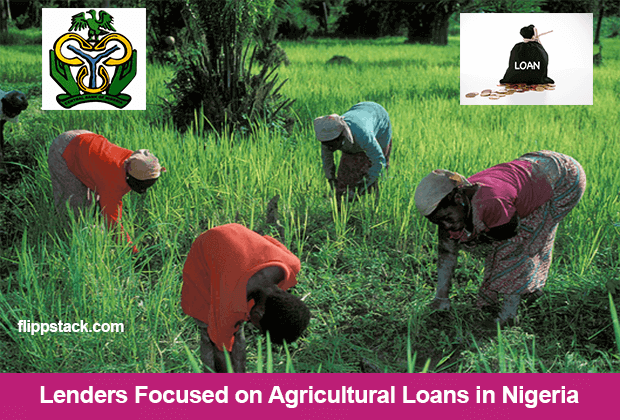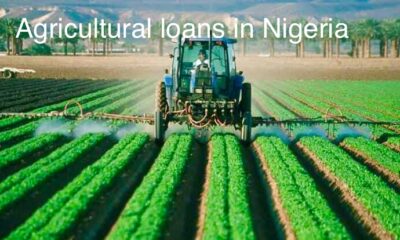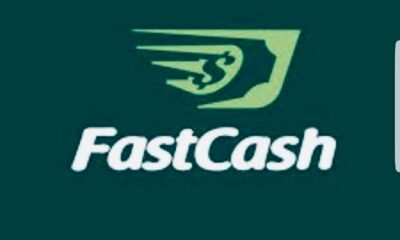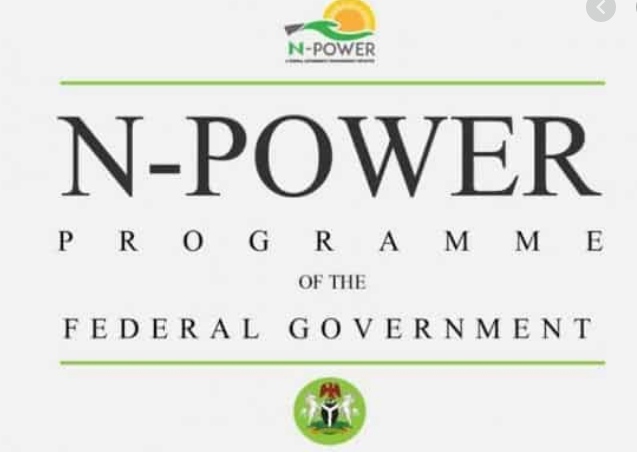Business & Loans
Six (6) Lenders Focused on Agricultural Loans in Nigeria

Six (6) Lenders Focused on Agricultural Loans in Nigeria
Are you looking for Agricultural Loan Lender in Nigeria to get a loan to boost your Agricultural business? if your answer is yes, then you are in the right place as we will be walking you through Six lenders that focus on Agricultural Loans in Nigeria, so keep reading.
The agricultural sector in Nigeria is one with untapped potential, as it employs roughly 70% of the population on a subsistence level. If you work in agriculture and want to take your business to the next level, or if you need business capital, an agricultural loan could be a good option.
In 2011, the Central Bank of Nigeria announced a ten-year credit allocation plan of 7% to the Nigerian agricultural sector. This plan was created to encourage agricultural participation while also increasing agricultural production output.
To accomplish this feat, the central bank implemented several measures, including the establishment of intervention funds such as the Commercial Agricultural Credit Scheme (CACS). The implementation of these measures is expected to increase agricultural output by 400% between 2011 and 2021.
You may also want to read How To Check Your NMFB NIB Window Loan Approval Status
If you’re wondering where and how to get agricultural loans in Nigeria, here are six lenders you could approach:
Six (6) Lenders Focused on Agricultural Loans in Nigeria
1. Bank of Agriculture
Popularly related to as the “farmers’ bank”, the Bank of Agriculture is a government-approved bank whose end is to give banking services, fiscal loans, and advice to growers in Nigeria. The bank is supervised by the Federal Ministry of Agriculture and regulated by the Central Bank of Nigeria. Some loans handed by the Bank of Agriculture include; SME loans, Cooperative and planter’s loans, Agriculturalmicro-loans, Non-agricultural micro-loans, and Agribusiness loans.
Key Mandates
- Provision of agricultural credit to support all agricultural value chain activities.
- Provision of non-agricultural microcredit
- Savings mobilization
- Capacity development through the promotion of co-operatives, agricultural information systems, and the provision of technical support and extension services.
- Provision of opportunities for self-employment in rural areas, thereby reducing rural-urban migration.
- Inculcation of banking habits at the grassroots of the Nigerian society.
In order to apply, kindly visit their official website at https://www.boanig.com/
2. Commercial Agriculture Credit Scheme (CACS)
The Commercial Agriculture Credit Scheme (CACS) is a loan scheme established by a dual collaboration of the Central Bank of Nigeria (CBN), and the Federal Ministry of Agriculture to support and fast-track the improvements/development of the agricultural sector of the country.
This means that anyone who owns a business in the agricultural sector can easily become a beneficiary of the Commercial Agriculture Credit Scheme (CACS) loan, where two hundred billion naira (N200,000,000,000) funds will be disbursed among successful applicants. Also, check How to apply for a CBN CIFI loan through GTBank.
Features of CACS loan
- The maximum limit for medium and large-scale private businesses is two billion naira (N2,000,000,000) while State Governments have no limit.
- Any private sector entity that wishes to participate must have at least fifty million naira (N50,000,000) worth of farm assets. This should not in any way have the cost of farmland attached to the base worth.
- In the case of the State Government, Irrevocable Standing Payment Order is required.
To apply for this loan kindly click here
3. Agric- Business Small and Medium Enterprises Investment Scheme AGSMEIS
This is a backing scheme established by the Federal Government in collaboration with the CBN to promote sustainable frugality and increase employment openings through agri- businesses.
The Nirsal Microfinance Bank is in charge of giving out this loan to farmers. Their agrarian loans have an interest rate of 5 with a tenor of 7 times. Diligence eligible for this scheme is the Agriculture sector, Service sector (ICT and the creative industry), Real assiduity (mining and manufacturing), and other SMEs approved by the Central Bank of Nigeria.
To apply for this loan, kindly click here
4. Agricultural Credit Guarantee Scheme Fund (ACGSF)
This action, established by the Federal Ministry of Agriculture and managed by the Central Bank provides a guarantee ( about 75) for loans extended to growers from marketable banks.
The ACGSF offers some products which include Interest, Debit, Tone- Help Group relations Banking, and the Trust Fund Model. Interest Debit grants interest rates. Tone- Help Group Relation Banking encourages group complements growers, and the Trust Fund Model complements growers’ security for loans.
5. Agricultural Credit Support Scheme (ACSS)
The ACSS is an initiative of the Federal Government and the Central Bank of Nigeria with the active support and participation of the Bankers Committee with the Scheme having a prescribed fund of N50.0billion.
ACSS was introduced to enable farmers to exploit the untapped potentials of Nigeria’s agricultural sector, reduce inflation, lower the cost of agricultural production (i. e. food items), generate surplus for export, increase Nigeria’s foreign earnings as well as diversify its revenue base. At the national level, the scheme operates through a Central Implementation Committee (CIC) while at the Federal Capital Territory (FCT) and State levels, the Scheme operates through State Implementation Committees (SICs) instituted to ensure that the objectives of the scheme are realized without hindrance.
To apply for this loan kindly click here
6. The Nigerian Incentive-Based Risk Sharing System for Agricultural Lending (NIRSAL)
This initiative was launched in 2011 and was incorporated in 2013. The purpose of this scheme is to address the low funding level in the agriculture sector. Also, to channel finance into fixed agricultural value chains. NIRSAL specializes in Agribusiness Project Development, Agricultural Risk Management, Value Chain Fixing, and Finance Facilitation.
Conclusion
These are Nigeria’s primary agricultural lenders, and they work in collaboration with some commercial banks. These banks include First Bank, United Bank of Africa, Access Bank, Union Bank, and a few others.
Good luck to all farmers out there, we appreciate your effort to feed the nation.
-
Tips2 years ago
Shiloh 2022 Programme Schedule – Theme, Date And Time For Winners Shiloh 2022
-
Business & Loans2 years ago
Dollar To Naira Today Black Market Rate 1st December 2022
-
Business & Loans2 years ago
SASSA Reveals Grant Payment Dates For December 2022
-
Jobs & Scholarship2 years ago
Latest Update On 2023 NPC Ad hoc Staff Recruitment Screening
-
Business & Loans2 years ago
Npower Latest News On August Stipend For Today Friday 2nd December 2022
-
Business & Loans2 years ago
Dollar To Naira Today Black Market Rate 2nd December 2022
-
Business & Loans2 years ago
Npower N-Tech Training: Npower Praises Female Trainees
-
Jobs & Scholarship2 years ago
Latest Update On Halogen Cyber Security Competition 2023


































You must be logged in to post a comment Login